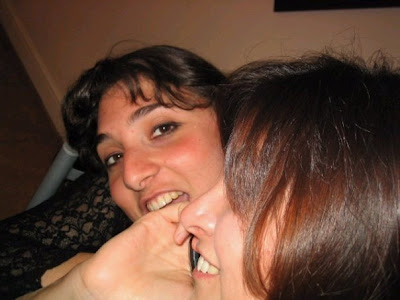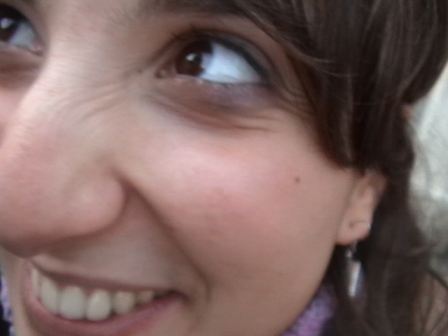Zitto
Doveva essere una giornata piena di eventi.
E invece e’ stata il vuoto e il silenzio per molti.
Pochi giorni fa, poche ore fa e’ mancato un giovane a Ginevra. Passeggiava i corridoi del mio ufficio, sedeva ad una scrivania qualche piano sotto alla mia, aveva la mia eta’. E probabilmente i miei sogni.
Ma non ho fatto in tempo a conoscerlo.
Accovacciata in un corridoio dell’ILO accompagno una mia amica sua conoscente a salutare i parenti. Scarpe nere e pantaloni scuri mi sfilano davanti, varcano la soglia della stanza che ospita la madre, il padre, la sorella e la ragazza del giovane.
La sorella, una ragazza slanciata, l’afro alto e nero, mantiene un sorriso sul volto, ed ascolta gli amici, uno dopo l’altro, che le parlano, l’abbracciano. Lei annuisce, ogni tanto abbassando il mento un po’ di piu’, e sbatte gli occhi continuamente. Chissa’ quanta forza in quelle palpebre che non si fermano un istante. E quanta forza in quelle poche frasi di chi lo conosceva bene.
Pochi vengono a pranzo. Si ritorna alle proprie scrivanie.
Si ha la stessa eta’, si siede qualche piano sopra o qualche piano sotto e si hanno gli stessi sogni di questo giovane. Nessuno avra’ pero’ le sue idee, il suo sorriso, il suo spirito e la sua generosita’. Ci si chiede perche’. Perche’ lui. E perche’.
Ci si chiede come fara’ la famiglia. Che significato ha quel corpo ora, trasportato freddo in una scatola di metallo e benzina fino al suo Kenya.
Ci si chiede se cio’ che puo’ restare in noi e tramite noi dei suoi sogni, delle sue idee, dei suoi sorrisi, spirito e generosita’ sia sufficiente.
Vinciamo i perche’ decidendo di continuare a portarlo dentro e intorno a noi, senza capire se sia questa la risposta, o se sia quella giusta.
E invece e’ stata il vuoto e il silenzio per molti.
Pochi giorni fa, poche ore fa e’ mancato un giovane a Ginevra. Passeggiava i corridoi del mio ufficio, sedeva ad una scrivania qualche piano sotto alla mia, aveva la mia eta’. E probabilmente i miei sogni.
Ma non ho fatto in tempo a conoscerlo.
Accovacciata in un corridoio dell’ILO accompagno una mia amica sua conoscente a salutare i parenti. Scarpe nere e pantaloni scuri mi sfilano davanti, varcano la soglia della stanza che ospita la madre, il padre, la sorella e la ragazza del giovane.
La sorella, una ragazza slanciata, l’afro alto e nero, mantiene un sorriso sul volto, ed ascolta gli amici, uno dopo l’altro, che le parlano, l’abbracciano. Lei annuisce, ogni tanto abbassando il mento un po’ di piu’, e sbatte gli occhi continuamente. Chissa’ quanta forza in quelle palpebre che non si fermano un istante. E quanta forza in quelle poche frasi di chi lo conosceva bene.
Pochi vengono a pranzo. Si ritorna alle proprie scrivanie.
Si ha la stessa eta’, si siede qualche piano sopra o qualche piano sotto e si hanno gli stessi sogni di questo giovane. Nessuno avra’ pero’ le sue idee, il suo sorriso, il suo spirito e la sua generosita’. Ci si chiede perche’. Perche’ lui. E perche’.
Ci si chiede come fara’ la famiglia. Che significato ha quel corpo ora, trasportato freddo in una scatola di metallo e benzina fino al suo Kenya.
Ci si chiede se cio’ che puo’ restare in noi e tramite noi dei suoi sogni, delle sue idee, dei suoi sorrisi, spirito e generosita’ sia sufficiente.
Vinciamo i perche’ decidendo di continuare a portarlo dentro e intorno a noi, senza capire se sia questa la risposta, o se sia quella giusta.











